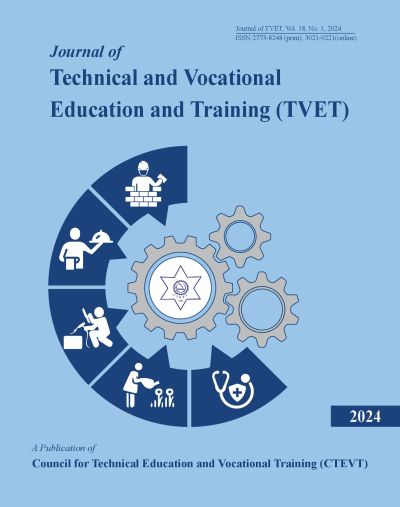Recognition of Prior Learning in Nepal: A Gateway to Socio-Economic Inclusion
DOI:
https://doi.org/10.3126/tvet.v18i1.62706Keywords:
recognition of prior learning, TVET, access, equity, qualifications frameworkAbstract
Recognition of Prior Learning (RPL) has become a popular policy instrument across the world- both in developed and developing countries. RPL is highly relevant in the context of Nepal, as it aims dignified employment to its people. Nepal has a huge number of people working in informal sector, including large number of migrants returning home every year with skills and experiences. However, the skills and competencies of these people are not yet harnessed to ensure them dignified jobs and better earning. This article is based on the secondary information along with author’s personal experiences and interaction with few RPL candidates. It presents the basics of RPL, the importance of RPL in the context of Nepal, and then looks at some problems and issues of RPL provision in Nepal. Finally, the article draws the conclusion on how the RPL can become a vital tool to boost Nepal’s socio-economic status.
Downloads
Downloads
Published
How to Cite
Issue
Section
License

This work is licensed under a Creative Commons Attribution-NonCommercial 4.0 International License.
© CTEVT All rights reserved
CC BY-NC This license enables reusers to distribute, remix, adapt, and build upon the material in any medium or format for noncommercial purposes only, and only so long as attribution is given to the creator.




